
The debut LP by legendary German guitar improvisor and instrument inventor Hans Reichel, an incredible display of brilliant playing, both technically and by approach, playing on acoustic and unfiltered electric guitars, originally issued on FMP in 1973, here re-mastered from the original tapes and retaining the original design; highly recommended.
In Stock
Quantity in Basket: None
Log In to use our Wish List
Shipping Weight: 3.00 units
EU & UK Customers:
Discogs.com can handle your VAT payments
So please order through Discogs
Sample The Album:
Hans Reichel-guitar
Click an artist name above to see in-stock items for that artist.
UPC: B072ZGY6X9
Label: Corbett vs. Dempsey
Catalog ID: CvsD033/FMP 0150
Squidco Product Code: 24544
Format: CD
Condition: New
Released: 2017
Country: USA
Packaging: Cardboard Gatefold
Recorded between April and June 1973, at home (1, 6, 9), at Youth-Center Hagen-Haspe (7), and at EROC-Studios in Hagen (2, 3, 4, 5, 8, 10).
"Originally released on FMP in 1973, this is the debut LP by legendary German guitar improvisor and instrument inventor Hans Reichel (1949-2011), a resonant and hilarious document of the nascent genius, recording his peculiar and wondrous music alone in a studio. Acoustic and unfiltered electric guitars turned back into the supremely malleable instruments they were before they'd been firmly encoded as tools for rock or pop or jazz. Reichel is like an improvising Harry Partch, investigating the genesis of lute music. Never before available on CD, remastered from original tapes, packaged lovingly with a gatefold and tip-on cover, reprinting the original design, which was by Reichel."-Corbett Vs. Dempsey
"Hans Reichel comes out of the tradition of Harry Partch, in as much as both men were unwilling to settle for what tradition handed them. Partch, who invented or modified an orchestra's worth of instruments to get the sounds he wanted, once called himself a "Philosophic music-man seduced into carpentry." If you learned of Reichel through the obituaries written after he died in 2011, you might think he was a graphic designer with a sideline in making wood sing like a badger. It's true that he made his crust throughout his life working as a typesetter and designer and that he invented an instrument called the daxophone. The daxophone was fashioned from amplified tongues of wood that were bowed to obtain a wide variety of sounds, including some rather like a badger's voice.
But when Reichel first started recording for FMP (Free Music Production) in the 1970s, he was a guitarist, albeit one who sounded like no one else around. Reichel's early discography became scarce after FMP sold off its vinyl stock in the 1992. It has taken until 2017 for his two earliest LPs, Wichlinghauser Blues and Bonobo, to make it to CD; you can also purchase them as downloads from the Destination: Out blog. Heard now, they reveal Reichel to be an example or fellow traveller than an influence. His easy shifts between interval-hopping and voluptuous note-warping recalls the blues-to-improv-to-exotica leaps of Mike Cooper. He doesn't sound much like Paul Metzger or Greg Malcolm, but like them he felt free to modify his instrument to get new sounds, such as the wobbly notes, alien tonalities and bursts of frenetic activity on "Wenn Das Rohr Dommelt," the first track on Wichlinghauser Blues. Heard blind, you might think that the tracks was from a recent LP by harpist Rhodri Davies rather than any guitarist.
Bonobo has a cartoon on the back of the sleeve that illustrates how Reichel made the instrument heard on that record; he removed the necks from a couple guitars and mounted them on a platform. The first record has another instrument that Reichel modified so that it had eleven strings and three pick-ups. These changes weren't for novelty's sake, but to allow him to find notes between the notes one usually plays, or to draw sounds hidden in a guitar's guts, rather like Sonic Youth would do in the 1980s when they jammed screwdrivers into guitar necks and turned them up really loud.
Wichlinghauser Blues is the rawer of the two. Half of it was recorded at home, but even the studio tracks have an in-the-red quality that amplifies the Hawaiian hangover quality of Reichel's music. Other tracks reveal an instrumental conception that, if you can ignore the tones, has a polyphonic quality more like that of a pianist than a guitarist. Bonobo's cleaner recording highlights the fluidity of Reichel's playing, and also his eccentric but unerring phrasing. In this respect, his graphic work made common cause with his playing; after his death, one fellow graphic artist recalled receiving impassioned 4 AM emails about kerning details. Bonobo also reveals Reichel's expressiveness side. For all their alien clangor and bracing sourness, "Moor" and "Des Jagers Klage" give vent to a universal bereftness. Reichel didn't hack up his guitars just to make them sound strange; he did what he had to do in order to get them to say what he needed to say."-Bill Meyer, Dusted Magazine
See also Hans Reichel: BonoboGet additional information at Dusted Magazine
Artist Biographies
• Show Bio for Hans Reichel "Hans Reichel (May 10, 1949 - November 22, 2011) was a German improvisational guitarist, experimental luthier, inventor, and type designer. Reichel was born in Hagen, Germany. He began to teach himself violin at age 7, playing in the school orchestra until age 15. Around age 15, he began to play guitar and became interested in rock music, including The Beatles, The Rolling Stones, and later, Frank Zappa, Cream, and Jimi Hendrix. Reichel played in various groups before giving up music for a time while studying graphic design and working as a typesetter. He came back to music in the early 1970s, when he recorded a tape of guitar music. This recording was sent to the jury of the German Jazz Festival in Frankfurt, where he was asked to appear in a special concert for newcomers. Discussions with Jost Gebers, the founder of Free Music Production (FMP), led to release of Reichel's music on the label, his first release being Wichlinghauser Blues in 1973. The majority of Reichel's body of work consists of solo recordings, along with performances in smaller group settings. He recorded duets with a wide variety of musicians, including accordionist Rüdiger Carl, cellist Tom Cora, percussionist EROC, and a number of guitarists including Kazuhisa Uchihashi and Fred Frith. Reichel was also a member of the September Band (along with vocalist Shelley Hirsch, Rüdiger Carl, and drummer Paul Lovens), and also performed with larger ensembles led by the likes of saxophonist Thomas Borgmann and Butch Morris, an avante-garde conductor. Due to the limited distribution of FMP, Reichel's music has never much been heard, especially in the United States. Smaller, independent labels such as Rastascan, Table of the Elements, and Intakt have issued some of his recordings in North America. Despite this limited exposure, Reichel was featured in Bart Hopkin's Gravikords, Whirlies & Pyrophones, a book and CD released in 1996, devoted to experimental musical instruments. He was also named among the "30 Most Radical Guitarists" in a 1997 issue of Guitar Player magazine. Hans Reichel died in Wuppertal, aged 62, in November 2011. He should not be confused with the painter Hans Reichel (1892-1958), a friend of both Henry Miller and Alfred Perles. Reichel constructed and built several variations of guitars and basses, most of them featuring multiple fretboards and unique positioning of pickups and 3rd bridges. The resulting sounds exceeded the range of conventional tuning and added unusual effects, from odd overtones to metallic noises, to his play.A variety of daxophone tongues His Daxophone is a single wooden blade fixed in a block containing a contact microphone, which is played mostly with a bow." ^ Hide Bio for Hans Reichel
3/31/2025
Have a better biography or biography source? Please Contact Us so that we can update this biography.
Track Listing:
1. Wenn Das Rohr Dommelt 4:05
2. Lupi (Inverse Echo) 0:27
3. Wichlinghauser Blues 6:41
4. Krampfhandlungen - 1st Version 5:45
5. Allegro Frustralupi 3:21
6. Krampfhandlungen - 2nd Version 7:09
7. Abendlied 4:18
8. Alfons "Al" Piepenbrink & His Lonely Wah-Wah-Pedal 1:39
9. Shaved Guitar 3:26
10. Schlaflied 3:42
Improvised Music
Free Improvisation
European Improvisation and Experimental Forms
Guitarists, &c.
Solo Artist Recordings
Jazz Reissues
Staff Picks & Recommended Items
Search for other titles on the label:
Corbett vs. Dempsey.


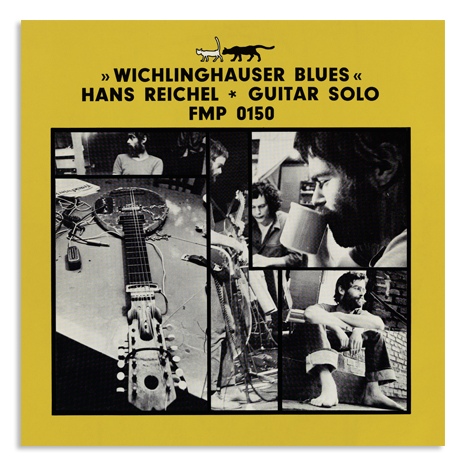
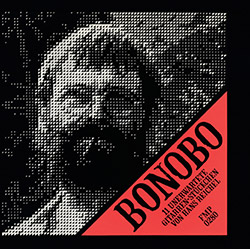
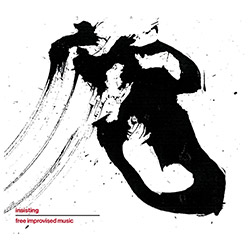
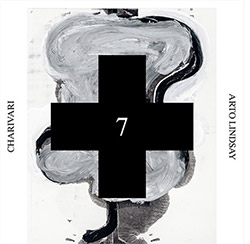
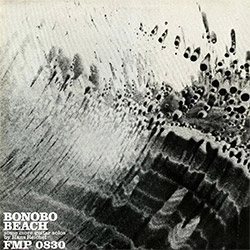
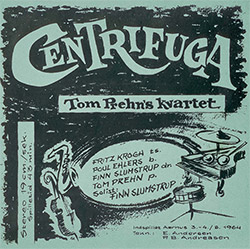
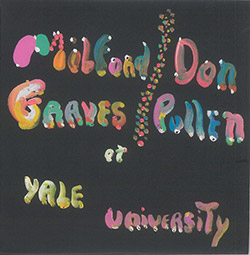
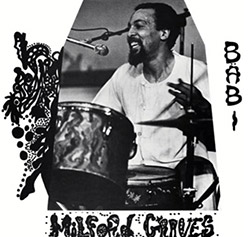

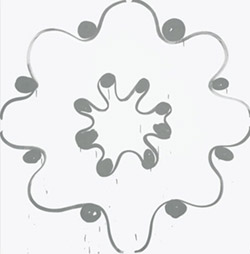
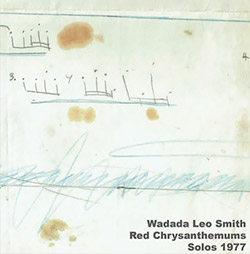




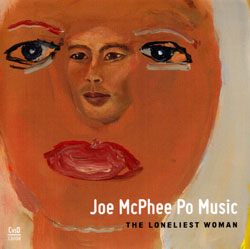


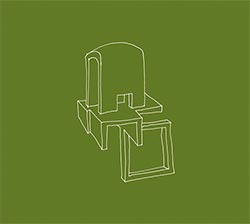




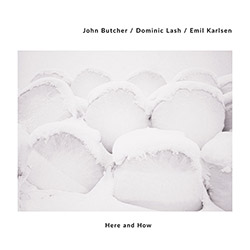
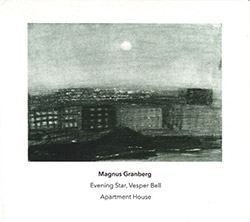
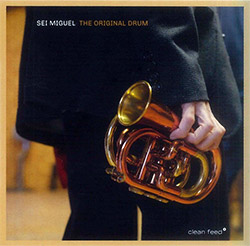


![Rodrigues, Ernesto / Nuno Torres / Guilherme Rodrigues: Whispers In The Moonlight - In Seven Movements [2CDs]](https://www.teuthida.com/productImages/misc4/35765.jpg)



![Cocks, Laura: FATHM [VINYL]](https://www.teuthida.com/productImages/misc4/36055.jpg)










![Ackerley / Prymek / Turner: All Hope With Sleeping Minds [CASSETTE]](https://www.teuthida.com/productImages/misc4/35950.jpg)
![Myers, David Lee : Tin Drop Tear [BOOK w/ DOWNLOAD]](https://www.teuthida.com/productImages/misc4/36030.jpg)



![Schindler, Udo / Sandy Ewen / Damon Smith: Munich Sound Studies Vols. 4, 5 & 6 [3 CDs]](https://www.teuthida.com/productImages/misc4/35966.jpg)






![Turbulence Orchestra & Sub-Units: Smear Out the Difficulties (Double Live) [2 CDs]](https://www.teuthida.com/productImages/misc4/36048.jpg)
![Perelman, Ivo / Tyshawn Sorey: Paralell Aesthetics [2 CDs]](https://www.teuthida.com/productImages/misc4/35871.jpg)


![Sjostrom, Harri: SoundScapes #4 Festival Berlin 2023 [3 CDs]](https://www.teuthida.com/productImages/misc4/35874.jpg)



![Glenn, Jordan: Flustered [CASSETTE]](https://www.teuthida.com/productImages/misc4/35948.jpg)


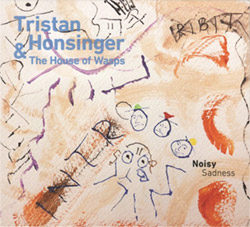
![Lindorff-Ellery, Evan: Church Recordings from Monhegan [CASSETTE]](https://www.teuthida.com/productImages/misc4/35949.jpg)
![Schindler, Udo / Werner Dafeldecker / Gunnar Geisse: Travelling Sound Images - Cognitive Transfers [Trio]](https://www.teuthida.com/productImages/misc4/35767.jpg)

![Egberth, Dennis: The Dennis Egberth Dynasty [VINYL]](https://www.teuthida.com/productImages/misc4/35549.jpg)


![Schindler, Udo / Rieko Okuda / Eric Zwang Eriksson: Disturbed Terrains [2 CDs]](https://www.teuthida.com/productImages/misc4/35330.jpg)






![Olencki, Weston : Pearls Ground Down To Powder [VINYL]](https://www.teuthida.com/productImages/misc4/35956.jpg)
![Myers, David Lee: Oculus [2CDs]](https://www.teuthida.com/productImages/misc4/35857.jpg)


![dustsceawung: dustsceawung [CASSETTE w/ Download]](https://www.teuthida.com/productImages/misc4/35753.jpg)




![Halls of the Machine: Atmospheres For Lovers And Sleepers [CASSETTE w/ DOWNLOAD]](https://www.teuthida.com/productImages/misc4/35806.jpg)



![AHC (Alexander Cooper): Lase [2 CDs]](https://www.teuthida.com/productImages/misc4/35754.jpg)



![Fagaschinski, Kai / Yan Jun : Graveyard Processions [VINYL w/ DOWNLOAD]](https://www.teuthida.com/productImages/misc4/35474.jpg)
![Brant, Cody / Carl Kruger: Smoke Detail [CASSETTE w/ DOWNLOAD]](https://www.teuthida.com/productImages/misc4/35551.jpg)








![Zorn, John / JACK Quartet: The Complete String Quartets [2 CDs]](https://www.teuthida.com/productImages/misc4/35609.jpg)

![Lonsdale, Eden: Dawnings [2 CDs]](https://www.teuthida.com/productImages/misc4/35480.jpg)







![Sanna, Claudio: Compositori Sardi Contemporanei II [2 CDs]](https://www.teuthida.com/productImages/misc4/35317.jpg)







![Zurria, Manuel: Fame di Vento [3 CDs]](https://www.teuthida.com/productImages/misc4/35167.jpg)

![Granberg, Magnus / Nattens Inbrott / Skogen: Holde Traume, Kehret Wieder! [2 CDs]](https://www.teuthida.com/productImages/misc4/35038.jpg)

![Electric Bird Noise / Derek Roddy: 8-10-22 [CD EP]](https://www.teuthida.com/productImages/misc4/35970.jpg)








![Elephant9 : Mythical River [VINYL]](https://www.teuthida.com/productImages/misc4/34624.jpg)



![Elephant9 with Terje Rypdal: Catching Fire [VINYL 2 LPs]](https://www.teuthida.com/productImages/misc4/35355.jpg)
![Deerlady (Obomsawin, Mali / Magdalena Abrego): Greatest Hits [VINYL]](https://www.teuthida.com/productImages/misc4/34876.jpg)







![Surplus 1980: Illusion of Consistency [CD]](https://www.teuthida.com/productImages/misc4/35069.jpg)
![Staiano, Moe: Away Towards the Light [VINYL + DOWNLOAD]](https://www.teuthida.com/productImages/misc4/35037.jpg)



![Caveira (Gomes / Sousa / Abras / Ferrandini): Ficar Vivo [VINYL]](https://www.teuthida.com/productImages/misc4/34643.jpg)
![Coley, Byron: Dating Tips for Touring Bands [VINYL]](https://www.teuthida.com/productImages/misc4/17906.jpg)

![Lost Kisses: My Life is Sad & Funny [DVD]](https://www.teuthida.com/productImages/misc4/lostKissesDVD.jpg)